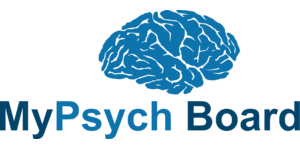Levi is a 25-year-old patient coming to see his counselor for his weekly psychotherapy session. Levi has been struggling with recurrent alcohol use that has led to consequences in his personal and professional life. Levi has been diagnosed with alcohol use disorder and has been seeing a therapist weekly as part of court-mandated therapy.
Q2 “There’s still the fact that I don’t have a problem here,” Levi tells you. “You don’t believe there are significant consequences associated with you drinking,” the counselor states. “No, the problem is everyone else,” he says. The counselor asks Levi about his current attempt at remaining sober. “I don’t see the point. It’s been a few days, but it just isn’t worth it to me. Tell me why that would be worth my time and efforts.” What response would be most effective?
A “You feel like there are other things that are more important for you to focus on right now.”
B “I’ll tell you why this is beneficial to you.”
C “It’s not my job to convince you, you need to figure this out on your own.”
D “I believe you have the best interest at heart here, you’re probably right.”
E “Didn’t you go to jail last month because of drinking?”
